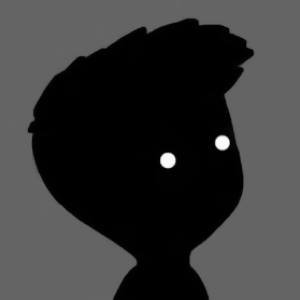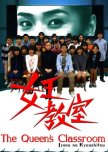Jyoou no Kyoushitsu is a drama that criticizes various aspects of Japanese society simply by asking rhetorical questions through the character of Akutsu Maya, a "devilish" teacher who is hell-bent on making sure each student in her 6th grade class thinks for themselves by throwing in their collectively cute faces the harsh realities of life. Her mantra: those who work hard and follow the chain of command will succeed and be "happy."
The students, all used to the carefree day to day happenings of school life with study time, sports days, and lunch breaks, immediately feel threatened when their sensei, "Akuma," unleashes her strict set of guidelines complete with harsh penalties and unfair judgements with an unkind demeanor in which to carry them out. The students react in various ways depending on their individual personalities. Some attempt to do everything the teacher says in fear of punishment and some attempt to get others to help take down the teacher. In dealing with the teachers, the relationships between the students fluctuate just as it would have in a business or family environment -- exactly as the teacher seemingly enjoys describing to the students.
It's a tough drama to enjoy because the atmosphere throughout the series is quite dark. Many times I found myself shouting at the teacher or the students for acting a certain way that I found disgusting, but at the same time I valued these negative routes taken not because it made it seem real, but because they evoked questions that I believe everybody should ask themselves -- questions like What makes me happy? and Why do I act the way I act?. When a drama makes me angry, I know it's a good drama because the emotion I feel is real and I realize it has forced me to reflect on myself and my own life.
Amami Yuki, the actress who play Akutsu Maya, did very well in portraying such a devlish teacher. She did so well that for the end credits of each episode, they had to show her after a take and smiling, a facial expression only used when she does something particularly "evil." Afterwords, she dances happily with a bunch of kids in a lively romp that when seen for the first time after episode 1 completely threw me off kilter.
Shida Mirai did an excellent job as the innocent-minded child that cannot understand why the teacher acts the way she does. Perhaps she was chosen for the role because she's incredibly adorable, but when it came down to serious business, she comes through without fault. Her role required her to cry a lot, and while I thought it was a bit overdone, it was done as well as can be expected -- definitely better than all the students. My favorite character, though, was Shindo Hikaru. Dark and silent, her too-calm demeanor hides an intelligence and maturity that's just too friggin' cool. Her actress was okay, perfect for the role but seemed weird when required to smile.
I don't like to spoil much, and I definitely will not say what the ending is, but I will say that contrary to a lot of people out there, I actually enjoyed the series all the way to the ending. The two specials were okay and did very well in explaining the things they set out to explain, but the emotional impact was nowhere near as heavy as the main series.
All-in-all, it's a great series with a message or two for people to think about. Great acting by the main characters and decent acting from most of the kids, the series hides a warm-hearted message in a dark tale.
(Originally posted January 5th, 2007.)
Esta resenha foi útil para você?





